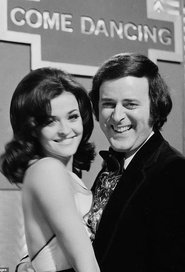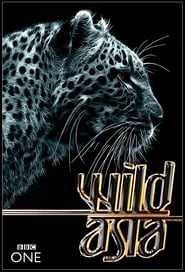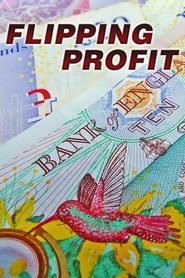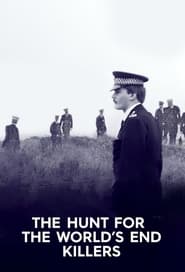Bbc One TV Series - Page 109
-
Ghost Stories for Christmas
1971
Broadcast in the dying hours of Christmas Eve, the BBC's A Ghost Story for Christmas series was a fixture of the seasonal schedules throughout the 1970s. For ten years viewers were chilled and terrified by atmospheric literary adaptations as well as sinister contemporary tales. -
The X Creatures
0000
The X Creatures
0000
The X Creatures is a British documentary television series that was produced by the BBC in 1998, which was broadcast in 1999 on BBC 1. It was presented by Chris Packham, and examined the possibility of the existence of cryptozoological creatures. The name of the show was a reference to the popular fictional television show The X-Files. Each episode involved Chris Packham travelling to a certain place on Earth where the creature supposedly exists, and examining eye witness accounts, as opposed to searching for the creature. No VHS or DVD releases were ever made. -
The Journey
1985
The Journey
1985
A series of ten programmes featuring playwright Peter Terson and reporter Dennis Skillicorn as they travel by gypsy wagon along the old pilgrims' route from Winchester to Canterbury. -
Crimewatch
0000
Crimewatch
0000
Crimewatch is a long-running and high-profile British television programme produced by the BBC, that reconstructs major unsolved crimes with a view to gaining information from the members of the public. The programme was originally broadcast once a month on BBC One, although in more recent years the programme has more usually been broadcast roughly once every two months. It was announced on 15 October 2008, that the BBC is to move the filming of shows such as Crimewatch to studios in Cardiff. The show was first broadcast on 7 June 1984, and is based on the German TV show Aktenzeichen XY … ungelöst. It was first presented by Nick Ross and Sue Cook. When Cook left in 1995, she was replaced by Jill Dando. After Dando's murder in April 1999, Fiona Bruce took over. Kirsty Young, Matthew Amroliwala and Martin Bayfield currently front the show; following the departures of Ross and Bruce in 2007 and Rav Wilding on 15 December 2011. -
Floyd's Fjord Fiesta
2001
Floyd's Fjord Fiesta
2001
Join Keith Floyd as he embarks on an exciting culinary adventure! In this seven-part series, Floyd traverses the frozen arctic wastelands of Lapland, crosses Sweden and Denmark, visits Norway's majestic fjords, and finally takes in the sights of Greenland, cooking tasty gourmet delicacies along the way. From Herring Fillets with Dill and Parsley; to Smoked Loin of Pork in Cherry Sauce; Scandinavian cuisine is brought vividly to life. The recipes are simple to follow and as always, Floyd shares his trademark witticisms and entertaining travelogue anecdotes. -
The Suspicions of Mr Whicher (2011)
0000
Three-year-old Saville Kent's brutal murder at Road Hill House shakes a sleepy English village. Inspector Jonathan 'Jack' Whicher investigates on the Home Secretary's orders. -
Star Spell
0000
Star Spell
0000
Star Spell is a BBC game show which put celebrities against each other in spelling related games, each one was subsequently eliminated until there was one Star Spell Champion. It was presented by Eamonn Holmes and was a spin off from the BBC programme Hard Spell. -
Come Dancing
0000
star 9Come Dancing was a BBC TV ballroom dancing competition show that ran on and off from 1949 to 1998, becoming one of television's longest-running shows. The show was created by Eric Morley, the founder of Miss World, and began in 1949 by broadcasting from regional ballroom studios, with professional dancers Syd Perkin and Edna Duffield on hand to offer teaching. In 1953 the format changed to become a competition, with later series seeing regions of the United Kingdom going head to head for the coveted trophy. The many presenters over the years included Peter West, McDonald Hobley, Charles Nove, Terry Wogan, Brian Johnston, Angela Rippon, Michael Aspel, Noel Edmonds, David Jacobs, Judith Chalmers, Pete Murray, and Rosemarie Ford. Commentators included Ray Moore and Bruce Hammal. In 2004, a re-launched celebrity version entitled Strictly Come Dancing, hosted by Bruce Forsyth and Tess Daly, debuted on BBC One, and became a popular hit on Saturday evenings. The format of the newer show has been successfully exported -
Saturday Superstore
0000
star 5Saturday Superstore was a children's television series, broadcast on BBC1 from 1982 until 1987. It was shown on Saturday mornings with presenters including Mike Read, Sarah Greene, Keith Chegwin and John Craven. The show was very similar to its predecessor Multi-Coloured Swap Shop. A regular spot on the show was their children's talent show "Search for a Superstar". The winner of the 1986 search were Claire and Friends spawning the top twenty hit "It's 'orrible being in love". In 1987, the contest was won by Juvenile Jazz, which included future OMD and occasional Stone Roses keyboard player, Nigel Ipinson. Amongst its most memorable moments were the pop group Matt Bianco being verbally abused by a phone-in caller and The Flying Pickets offering as a competition prize a tea-towel bearing the face of Karl Marx. Other notable guests included Wham!, who answered questions about their lives to callers and read out competition answers and winners. The presenters released a single entitled "Two Left Feet", though it fa -
Summerhill
2008
Summerhill
2008
Summerhill is a British children's television drama about the famously radical Summerhill School. written by Alison Hume and directed by Jon East. It was first broadcast on the CBBC Channel in January 2008 and was subsequently nominated for three children's BAFTA awards: Best Drama, Best Writer and Breakthrough Talent. It won the awards for writer & breakthrough nominations. The show launched the careers of a number of young actors, most notably Jessie Cave who went on to star as 'Lavender Brown' in Harry Potter and the Half-Blood Prince, and also Olly Alexander, Eliot Otis Brown Walters and Holly Bodimeade. The series was also shown on BBC One, and as a feature length film on BBC Four. -
Wild Asia
2009
star 6Asia is the most diverse region on Earth, home to a remarkable collection of iconic animals. Elusive snow leopards hunt in the Himalayas, orang-utans dwell deep within humid rainforests and wild horses graze the stony Gobi Desert. The Wild Asia series reveals the incredible range of Asia’s environments and wildlife. -
The Collectors
0000
star 5The Collectors is a British television drama about Her Majesty's Customs and Excise in the fictional Dorset town of Wrelling. Produced by the BBC, one series of 10 episodes was first shown in 1986. Location scenes were filmed around the English resorts of Poole and Weymouth, in particular featuring the old Poole Customs House on the harbour. -
Comic Relief: Uptown Downstairs Abbey
2011
star 6Red Nose Day 2011 - The American actress Kim Cattrall, best known for playing Samantha in Sex and the City, will join forces with Comic Relief veterans Joanna Lumley, Jennifer Saunders, Victoria Wood for the spoof. Harry Enfield, Tim Vine, Dale Winton, Simon Callow will also take part in the irreverent take on the popular drama about life above and below stairs in the Edwardian era. Victoria Wood plays "Mrs Crawler" and Joanna Lumley the housekeeper figure. The sketch will apparently reveal how much of a flirt Lady Mary really is, and whether Thomas the dastardly second footman is as catty off camera as he is on it. -
Holding Back the Years
2017
Holding Back the Years is a series looking at the experiences of growing older in Britain today, and how they've changed over the decades. Each episode sees a different 60 plus year old celebrity explore a particular aspect of getting old that interests and affects them most – from relationships and family to health and wellbeing, pensions and money, to simply looking in the mirror and seeing a ‘new' old you. Through meeting inspirational characters, unearthing long lost archive clips and visiting places that do amazing work helping the elderly, the series seeks to take an uplifting, look at a subject often ignored, while offering fantastic takeout for viewers of all ages. -
No Exit
1972
No Exit
1972
-
Flipping Profit
2018
Flipping Profit
2018
An antiques expert, a market trader and an upcycler battle it out to make the most money for BBC Children in Need. -
The General
1998
The General
1998
The General was a BBC fly-on-the-wall Television series hosted by Yvette Fielding, Chris Serle and Heather Mills. Based at Southampton General Hospital, the programme tracked the progress of selected patients, including outpatients, at the hospital. The series was broadcast live every weekday on BBC One, in a daytime slot. 61 episodes of the programme were aired in total; 58 of them in 1998, and the other three in 2002. The original director of the series was Dave Heather. As well as the presenting team tracking patients and staff in the hospital, the programme also featured Heather Mills abseiling down the side of the hospital and demonstrating various uses for her prosthesis. However, it was alleged some years after the series finished that Mills was appointed to the presenting role under false pretences, having claimed that newspaper articles written by a journalist namesake were written by herself. The show also featured occasional celebrity guest appearances, including a visit from endurance expert Mike Stro -
The Hunt for the World's End Killers
2022
star 8The story of one of Scotland’s most notorious double murders. This series charts the twists and turns of a case that remained unsolved for over 35 years.









